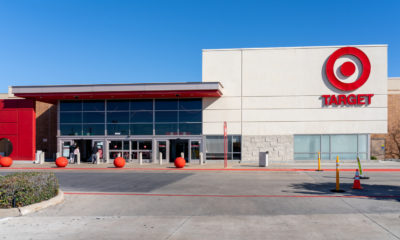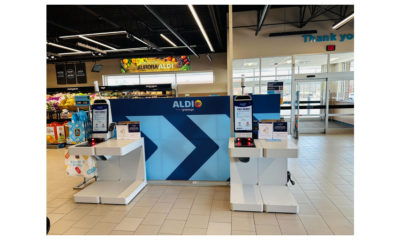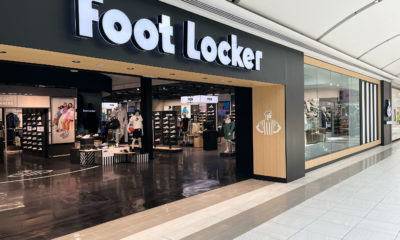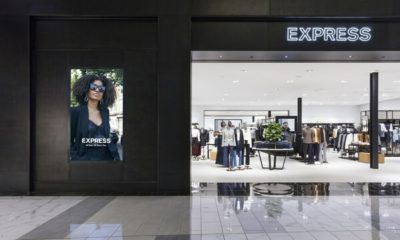GREAT CUSTOMER EXPERIENCE (CX) drives revenue growth in the retail world. But who gets the credit for the great experience and increased sales? At the corporate level, you have savvy marketing, sales, product, and (if you’re really savvy) CX teams and metrics, all of which lead to credit given to leaders. But what about the customer-facing employees? Those who interact with consumers day in and day out?
Customer-facing employees play a critical role in the CX. As consumers ourselves, this may seem like a no-brainer: A single interaction with an employee can make or break our experience, regardless of whether we are in-store, on the phone or in virtual chat. Moreover, depending on how we view the experience, good or bad, it can completely alter our perception of the brand. This is still hard for some brand leaders to grasp. A recent study by the Columbia Business School found executives in earning calls talk about their customers 10 times more than their employees. When they do, executives perceive customers as comparable to opportunities and employees to risk.
What if we told you there is plenty of research out there that supports the connection between positive employee experience (EX) and CX? That happy employees make for happy customers. You might think, “Great, let’s make a better EX by increasing the perks of the job and offering a better benefits package, and we’re all set, right?”
Wrong.
Heavy employee discounts, higher hourly wages, or flexible schedules don’t cut it anymore. Company perks like these are considered table stakes today. They are easy for other companies to emulate, putting your brand in the same sea for top talent. Employees have all sorts of reasons for working where they do. Whether it’s to build up their resume, work for a brand they already love or know they are putting efforts towards a greater cause, employees want to feel purpose and be connected to their work.
This mode of thinking shouldn’t sound unfamiliar to brands. Consumers today choose brands for these sorts of reasons, too: lowest price, best quality, brand loyalty, and sometimes a brand’s values or environmental impact. The difference is that brands have grown accustomed to creating strong value propositions for their customers to drive business and profits, but what about a value proposition to win with employees?
Advertisement
With this in mind, let’s examine how retail brands can deliver better CX and drive revenue by homing in on their employee value proposition (EVP).
THE BLUEPRINT FOR BELIEF
First, an employee value proposition (EVP) is the promise an employer makes to its employees – the unique benefits and rewards they receive in exchange for their skills, experiences, and contributions. The message states, “This is us, and here’s why you want in.” More importantly, it’s the intentional crafting of your organization’s reputation as an employer because, believe it or not, it exists with or without your involvement. A study by LinkedIn found that 75 percent of job seekers consider an employer’s reputation before even applying for a job. Why? Because the digital era has placed the power right in the hands of the employee. Job seekers can find any and all information about an employer in a matter of seconds, and depending on what they discover, it could steer them away.
However, an EVP is not merely a written statement; it’s a living commitment embodied in an organization’s actions. It articulates the unique value employees receive, underlining a two-way promise: organizational benefits in return for employees’ skills. However, without tangible actions supporting these promises, an EVP is hollow. It’s about validating these words with actions that add true value to the EX.
Brands that fail to uphold the promise inherent in their EVP risk weakening trust and engagement among their employees – which can potentially lead to higher turnover rates and poor customer service. On the other hand, brands that successfully manifest their EVPs attract high-quality talent and nurture a satisfied, productive, and loyal workforce. When employees are in love with where they work, they become storytellers; they are evangelists spreading the good word about your brand’s miracles. Think of Apple, Nike, Google, and Tesla. They aren’t just corporations; they’re like cults with followers that treat their products like trophies and often, this happens because of a great CX provided by a team member who is fully committed to the brand.
ENGAGED EMPLOYEES DRIVE BUSINESS
As more of today’s shoppers seek to align their purchasing decisions and values, they pick brands that care for their employees. 64 percent of consumers say they have stopped purchasing a product after hearing that the company treats employees poorly. In addition, a study done by Harvard Business Review notes that brands that create positive, respectful, and rewarding environments have a return on equity and assets more than triple that of companies that don’t prioritize EX.
An EVP is the first step to fostering a positive work environment, as it is a pledge to existing and future employees that you are truly invested in their experience. It allows the opportunity to codify the type of employer you want to be by creating a sense of belonging and purpose. When employees have purpose, they feel valued, empowered and engaged. This doesn’t have to be a “higher” purpose, either – many employees simply want to feel utilized and appreciated. In a recent survey, nearly 65 percent of workers said they would work harder if they felt like their contributions would be noticed by management—this is a big opportunity for retail brands to rethink their EX.
Advertisement
Employees who feel valued are more likely to deliver exceptional service, going above and beyond the duties of the job to meet customer needs. According to Gallup, companies with highly engaged workforces outperform their peers by 10 percent in customer ratings and by 22 percent in profitability. Moreover, employees who feel truly connected are equipped to embody the brand to deliver a consistent brand experience across all touchpoints for the customer. Whether through personalized interactions, proactive problem-solving or a genuine commitment to customer success, engaged employees become brand ambassadors who drive customer loyalty and advocacy.
As the retail landscape continually evolves, it’s clear that sustaining growth and revenue hinges not merely on customer-centric strategies but equally on how these brands value and engage their employees. Brands must create EVPs that transcend the norms of workplace benefits, embedding brand thinking into the values and actions of the organization to foster a culture where employees feel greatly connected to and invested in their work and the brand’s success. Retail brands that recognize and act upon the synergy between engaged employees and satisfied customers set themselves apart from competitors. They attract and retain top talent and build a loyal customer base drawn to the validity and exceptional service that engaged and valued employees naturally provide. Prioritizing employee experience through a meaningful EVP is not an option but a critical investment for retail brands aiming for long-term capital and a dominant competitive edge. This reflection on the power of an EVP in enhancing CX and driving revenue underscores an essential truth in the retail industry: the heart of every successful brand lies in its people.
About ChangeUp: Alexa Jewell Schaefer is Director of Strategy at ChangeUp. ChangeUp is an award-winning experience agency driving change for fast-moving brands. Our tailored solutions address clients’ unique challenges and opportunities ranging from strategic positioning, to launching a refreshed brand identity and design, to rolling out scalable store environments. We’ve partnered with clients including Best Buy, The Vitamin Shoppe, Panera Bread, Bath & Body Works, Discount Tire, KIA, Jimmy John’s, and Trek. Learn more at www.changeupinc.com.

 Photo Gallery2 weeks ago
Photo Gallery2 weeks ago
 Headlines1 week ago
Headlines1 week ago
 Headlines2 weeks ago
Headlines2 weeks ago
 Headlines6 days ago
Headlines6 days ago
 Headlines1 week ago
Headlines1 week ago
 Designer Dozen2 weeks ago
Designer Dozen2 weeks ago
 Headlines2 weeks ago
Headlines2 weeks ago



















